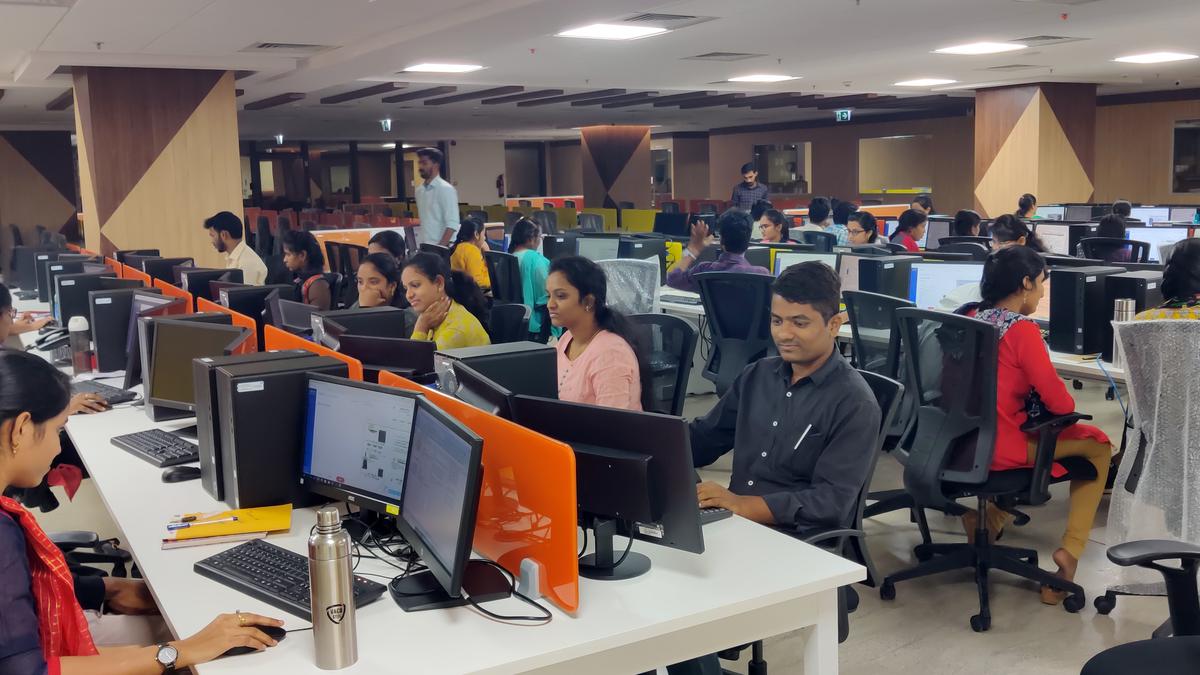By Vallari Sanzgirikv Kurmanath
Copyright thehindubusinessline

The recent US proclamation introducing a hefty one-time fee for new H-1B visa petitions has worked in favour of mid-size Indian IT firms who pivoted away from H-1B visa and onshore work models much earlier than the larger tech firms.
Companies like Mphasis, Cyient and Happiest Minds Technologies indicated that their proactive measures, including increased local hiring and strategic acquisitions, shielded them from significant operational or financial impact.
Mphasis attributed its resilience to a steady reduction in visa reliance achieved through “increased local hiring, acquisitions, and partnerships over the years”. Stating that it does not foresee any significant impact on its financials or operations, it said it had only about 130 new filings in 2025.
Client requirements
“Of those filings, we have received 78 new approvals to date,” said the company adding that it is “fully staffed for all existing client requirements”.
B V R Mohan Reddy, the Founder-Executive Chairman of Cyient Limited, emphasised the company’s long-standing strategy of hiring locally.
“We never did body shopping for human resources requirements in the United States. We have believed that the H-1B model will not last long,” Reddy said.
He pointed to the recent acquisition of US-based Altek Electronics as a move that expanded its North American presence and strengthened its local workforce.
Venkatraman Narayanan, Managing Director of Happiest Minds Technologies, said that to meet client needs, “the company combines local hiring with deploying its own employees through intercompany transfers”.
Reduced H-1B filings
According to Aditya Narayan Mishra,-MD and CEO of CIEL HR, midcaps like Hexaware, Cyient, Persistent and Mphasis, have already reduced H-1B filings by 50-70 per cent over the past five years and built stronger domestic and offshore talent pipelines. Their hiring strategies now centre around remote contracting, offshore delivery hubs, and flexible engagement with gig talent.
However, Sanchit Vir Gogia, Founder and Chief Research Analyst at Greyhound Research, pointed out that mid-size companies bank more on offshore rather than onshore workforce so the changes work in their favour.
What is more important to consider is the action that will now be taken by the big leagues like HCLTech, Infosys, TCS and Wipro. Companies like Infosys have been ramping up their near-shore, a testament to the sheer demand such companies cater to in the US.
Customer sentiment
“To understand the full impact of the H-1B visa development, it is important to look at the customer sentiment rather than simply application numbers. The US administration has over the years also been changing its attitude towards H-1B visas which is again going to impact the sector in a big way. It is no longer just a question of narrative but a matter of context,” said Gogia.
Similarly, Rajesh Palviya, Senior Vice President, Head Research, Axis Securities, said that mid-size companies with smaller projects do not require much workforce at client location.
“Post-Covid, these companies have adopted an offshore model. So in terms of profits as well, offshore or near-shore is more compatible with their business. There might be a minor hit on profits but prima facie, no impact,” he said.
In terms of hiring, Palviya expected all companies to now focus on a dedicated talent pool, willing to stay with the company for three-four years as opposed to short-term employees.
Published on September 23, 2025



